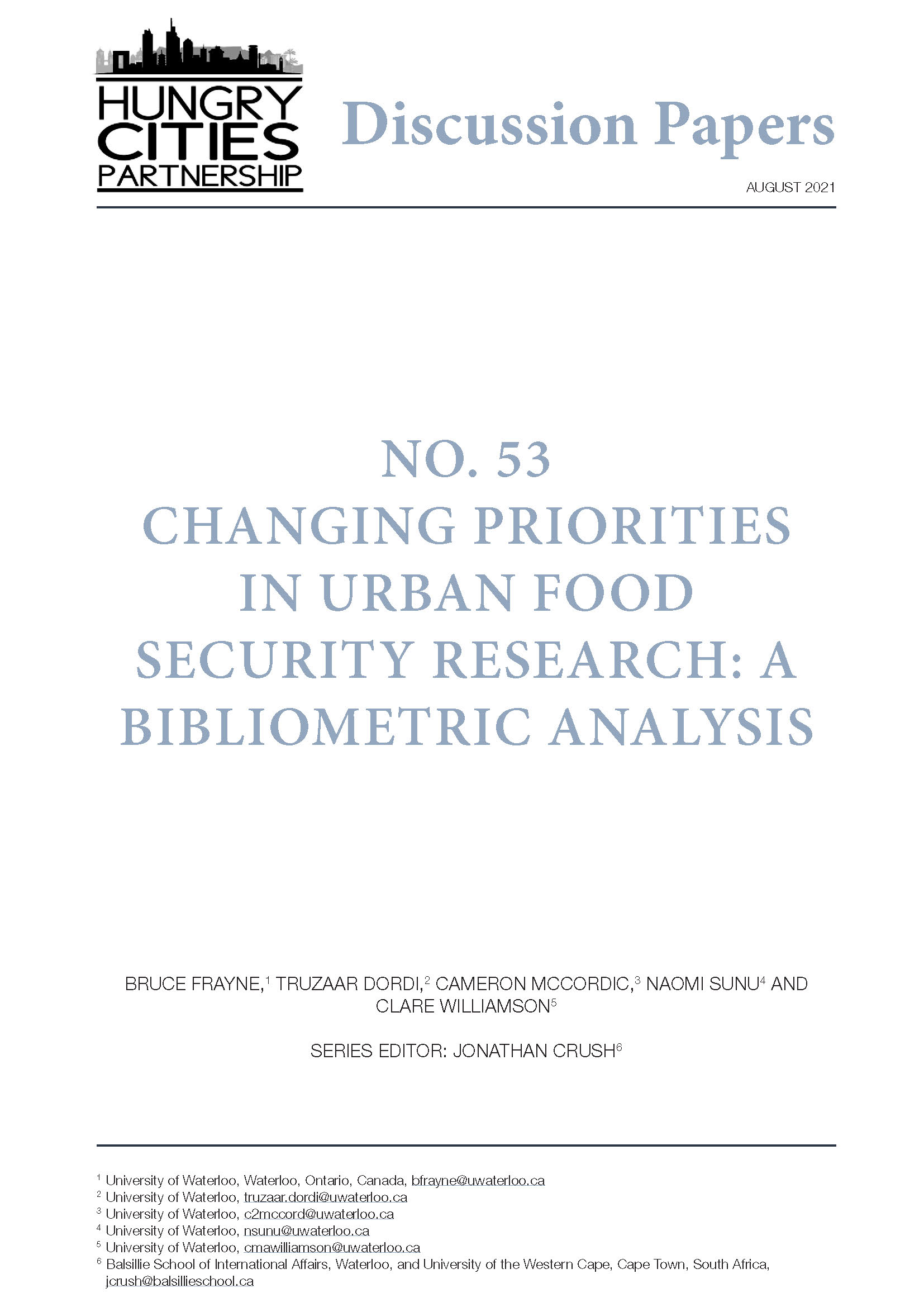The study of urban food security has evolved dramatically over the past few decades. This evolution has been punctuated, and catalyzed, by insights into the dynamic transformation of food systems in cities across the Global South. The evolution of this field provides an important vantage point for understanding both the dynamic transformation of urban food systems as well as the lens through which that transformation has been understood. This investigation of the field adopted a bibliometric methodology, blending quantitative and qualitative analytical techniques, to assess the dynamic evolution of the literature over time. The methodology included a quantitative analysis of metadata for 162 publications on urban food security. The results of the analysis provide an overview of research progress, historical and evolutionary trends, geographic disparities, keyword distribution, networks of collaboration, and key thematic foci. The quantitative analysis is complemented with a qualitative examination of top publications in the field. The results present a historical narrative of the evolution of urban food security research. In particular, they indicate that the field has diversified its foci along key distinctions in food access and supply. Within these dimensions, much of the research has centred on discussions on alternative food systems, interpreted through a North-South geographic lens. The findings also identify common strategies and challenges inherent to the governance of urban food systems. In summary, the paper provides a unique vantage point for discovering the evolution of urban food security and the perspectives that have defined that evolution.

